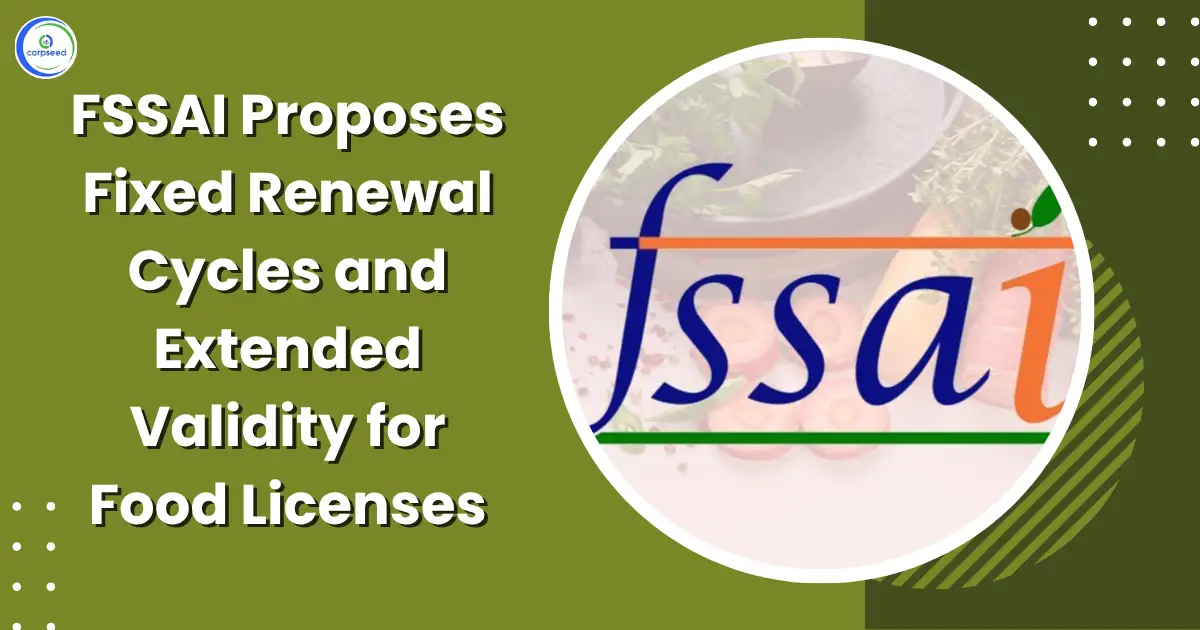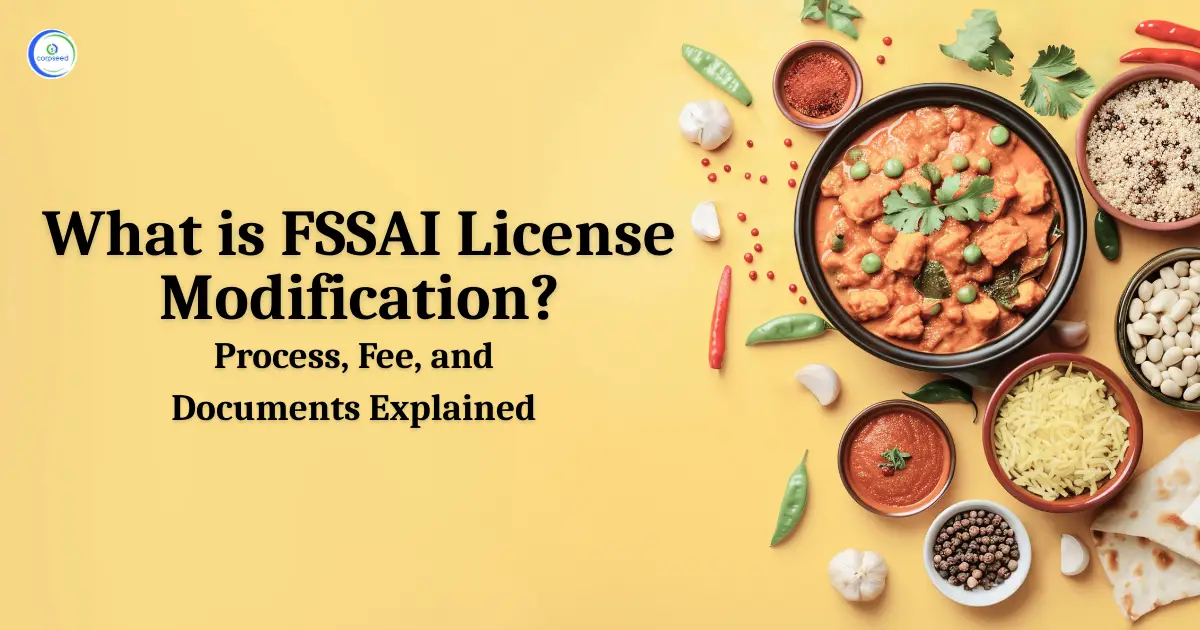In India, the Food Safety and Standards Authority of India (FSSAI) plays an important role in ensuring the safety and quality of food products. FSSAI licenses and registrations are mandatory for businesses involved in the food industry, and obtaining or renewing these documents is an essential process for food business operators (FBOs). However, the current renewal system often creates confusion and operational challenges, especially for businesses with multiple units in various regions. To tackle these issues, the FSSAI has proposed a set of reforms aimed at simplifying and standardizing the renewal process.
Table of Contents
--------------Blog Contact Form-------------
Understanding the FSSAI Proposal
The FSSAI proposal, introduced in May 2025, aims to simplify the license and registration renewal process for food businesses. It suggests introducing fixed renewal cycles, allowing businesses to select from standardized dates. This will apply to both existing and new food business operators (FBOs), making planning easier and reducing the risk of missing deadlines. Additionally, FSSAI proposes to offer licenses with extended validity of up to 10 years businesses such as wholesalers, distributors and e-commerce operators. For small businesses, a minimum of 3 years of validity is recommended for FSSAI registration. These changes aim to streamline administrative processes, improve compliance, and reduce operational burdens for food businesses across India.
Challenges with the current FSSAI licensing and registration system
The current system for FSSAI license and registration renewal presents several challenges for food businesses. These challenges are especially salient for operators that have multiple units spread across different states or manage different types of food operations. Some of the key issues facing food businesses include:
- Non-Uniform Expiration Dates: Under the current system, the validity of FSSAI licenses (FSSAI Central license and FSSAI State License) is determined based on the date of issuance, making it difficult for FBOs to track different renewal timelines across locations. This leads to confusion and potential lapses in compliance.
- Administrative Burden: With varying expiration dates, food businesses face the challenge of managing multiple renewal timelines, which require extensive monitoring and coordination, which increases administrative costs.
- Frequent Renewal Requirements: FSSAI licenses are usually issued for a period ranging from one to five years and businesses have to renew frequently. This results in unnecessary administrative work and potential service delays.
Also Read: FSSAI and Food Technology: The Role of Science in Food Safety
Proposals to Simplify FSSAI License Renewal
To address the challenges outlined above, the FSSAI has proposed several reforms designed to simplify the FSSAI licenses renewal and registrations. Let’s look at these proposals in more detail:
Proposal 1: Fixed Renewal Cycles
One of the most significant reforms suggested is the introduction of fixed renewal cycles for FSSAI licenses and registrations. Under this proposal, food businesses would be allowed to choose a uniform renewal date from the following options:
- 15th January
- 15th April
- 15th July
- 15th October
For Existing FBOs: When renewing their licenses, businesses will be able to choose one of the above dates for their next renewal cycle. The renewal fee will be calculated based on the date selected.
For New FBOs: Food business operators applying for an FSSAI license will be assigned the nearest upcoming renewal date by the FSSAI system. In addition, businesses will be able to reset their renewal date to any of the above dates by paying a differential fee for the extended period.
This system ensures that food businesses can plan for renewals and reduce the risk of missing deadlines.
Proposal 2: Prolonged Validity Option for FSSAI Licenses
FSSAI has also proposed to provide longer validity options for certain types of businesses. Food businesses under the trade/retail head will be able to opt for a license valid for up to 10 years. These businesses include:
- Storage (Except Controlled Atmosphere and Cold)
- Storage (Cold / Refrigerated)
- Storage (Controlled Atmosphere + Cold)
- Wholesaler
- Distributor
- Transportation
- Retailer
- Direct Seller
- Food Vending Agencies
- Importer
- e-Commerce
- Trader/Merchant – Exporter
FBOs that choose this option will have to pay a differential fee when the license fee increases or if they change their license type from state to central. However, no refunds will be given if a business switches from a central license to a state license.
Proposal 3: Minimum Validity for FSSAI Registration
The third proposal focuses on FSSAI registrations, which are usually issued to small food businesses. Under the new proposal, a three-year minimum validity period will be introduced to replace the current one- and two-year options. The change will eliminate the need for frequent renewals and reduce reliance on consultants for FSSAI registration, making it easier for small businesses to maintain compliance.
Also Read: How to Apply for FSSAI License for Exporters?
Expected Benefits of Proposed FSSAI Reforms
The implementation of these proposals will have several significant benefits for both food businesses and regulatory authorities.
- Simplified Compliance: With a fixed renewal cycle, food businesses no longer need to track multiple renewal dates for different units in different regions. This simplification will help businesses plan better and avoid the risk of non-compliance due to missed deadlines.
- Operational Efficiency: The ability to bulk-renew FSSAI licenses for multiple locations or units will streamline operations, saving businesses time and effort. FBOs with a headquarters COBI will be able to renew multiple link licenses simultaneously, further reducing the administrative burden.
- Increased Awareness and Education: By standardizing renewal dates, officials will be able to conduct nationwide awareness campaigns to educate food businesses about the importance of timely renewals. Similar to income tax return deadlines, businesses will be more amenable to renewal cycles, improving overall compliance rates.
- Support for Small Businesses: The proposed changes in FSSAI registration, especially the introduction of a three-year validity period, will directly benefit small businesses, reduce the frequency of renewals and reduce administrative hassles. This will allow smaller food vendors and hawkers to focus more on their operations rather than dealing with bureaucratic processes.
- Flexibility for Businesses: With the option to choose a fixed renewal date and the availability of long-term validity types of businesses, FBOs will enjoy greater flexibility in managing their licensing requirements. This will help reduce last minute rush and allow businesses to focus on their core operations.
Conclusion
FSSAI’s proposed changes offer a promising solution to the challenges faced by food businesses when renewing their licenses and registrations. By implementing fixed renewal cycles, offering longer validity for certain businesses, and simplifying the registration process for small businesses, these reforms will provide much-needed clarity and operational efficiency. As food safety regulations continue to evolve, these proposals demonstrate FSSAI’s commitment to ensuring that compliance remains accessible, streamlined and manageable for businesses of all sizes. FSSAI licensing, FSSAI registration and FSSAI central licensing will continue to be important components of the food industry landscape. These changes will not only ease the renewal process but also improve overall compliance with food safety standards, benefiting both businesses and the consumers they serve.
This portion of the site is for informational purposes only. The content is not legal advice. The statements and opinions are the expression of author, not corpseed, and have not been evaluated by corpseed for accuracy, completeness, or changes in the law.
BOOK A FREE CONSULTATION
Get help from an experienced legal adviser. Schedule your consultation at a time that works for you and it's absolutely FREE.









